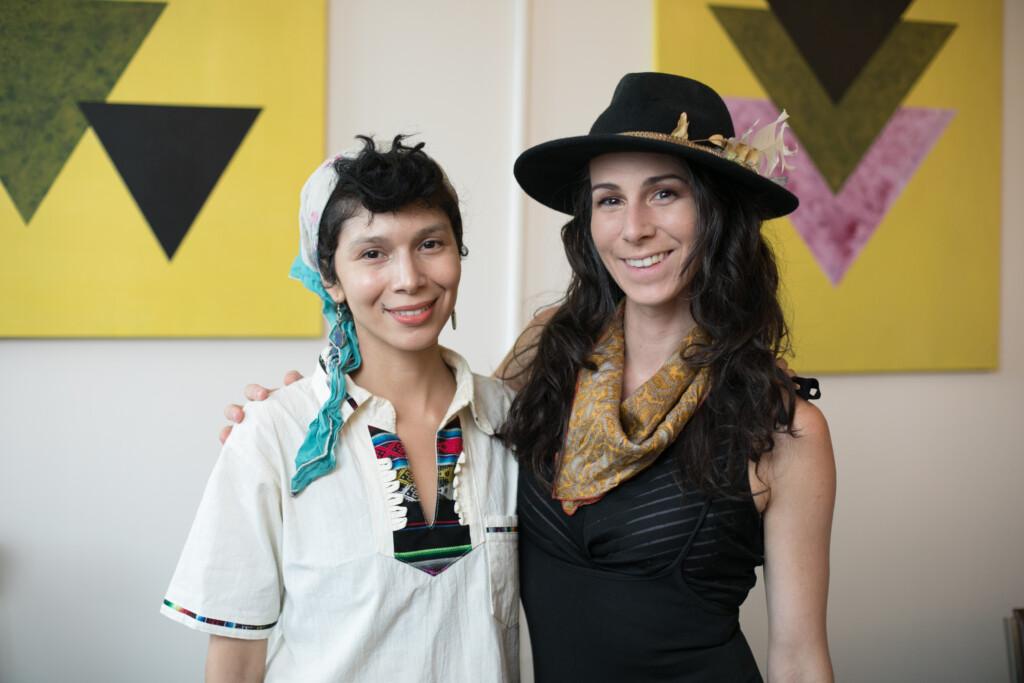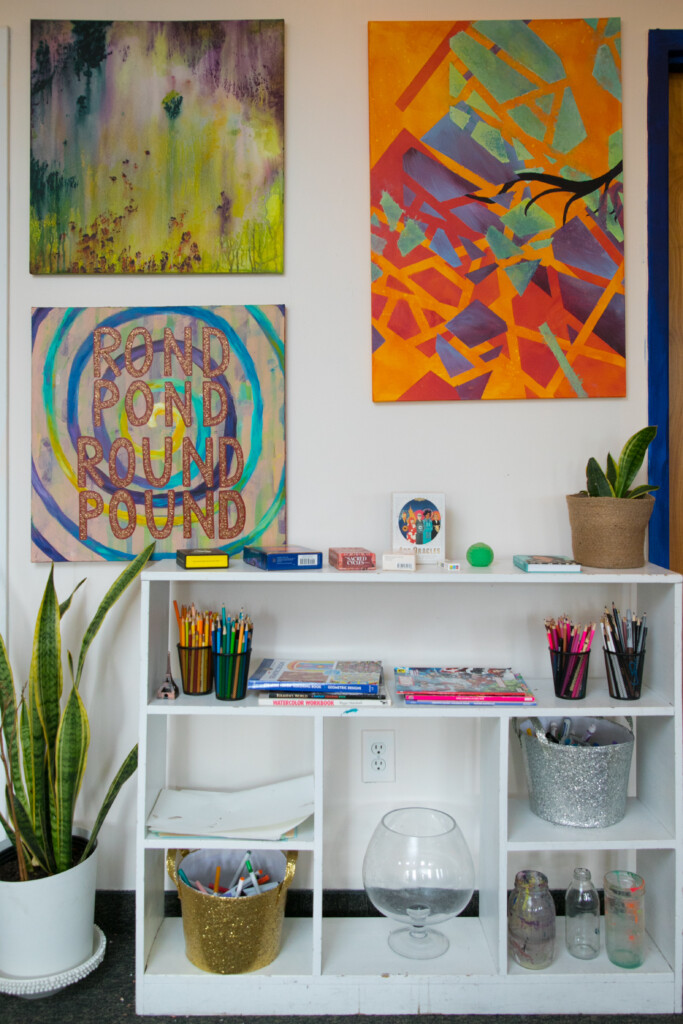“Sometimes, creativity hurts a little,” says Casey Arthur, founder of Muck Duck Studio. Arthur, who prefers to go by her artist handle, Miss Casey, sits across from me as she drinks a cup of coffee that has just been reheated in the microwave. “That’s okay,” she continues. “Be with your discomfort. You have to release the pain.”
As I hear Miss Casey speak, I am acutely aware that Muck Duck Studio is unlike any nonprofit I have experienced before. I listen to her and a few members of her team for more than an hour as they tell me how Muck Duck started, what it offers, and who it serves.
After the hour is up, I find myself smiling and feeling hopeful. This studio is just what we need as a society right now. As an alcohol-free creative empowerment space, Muck Duck provides community members a safe and brave place to try out new creative experiences and, in doing so, to gain the tools needed to live this crazy thing we call life. From open mic nights to somatic-based yoga classes to doodle sessions (exactly how they sound), Muck Duck has something for anyone who identifies as a creative or connoisseur of the arts.
Located on the third floor of the Blossom Business Center, Arthur founded Muck Duck Studio in August 2020, after her plans of joining the Peace Corps in Ecuador were cut short due to COVID. As a self-described “humanitarian gone rogue” and multitalented artist, she started Muck Duck in hopes of supporting the local community’s creative needs.
“People don’t need help: they need love,” says Arthur. At Muck Duck, this love manifests in four main pillars of service: visual art, music, somatic practice, and environmentalism. It houses eleven full-time multicreative interdisciplinary artists who have access to the space twenty-four hours a day to make, share, and create their art. According to Ambar de Santiago, creative director of the studio, a big theme of Muck Duck is what she refers to as inter-art, or a type of artistic cross-pollination.
[gtx_gallery]
“There is a lot of overlap here,” says de Santiago. “Artists with different mediums come together to create something new.” One such example is de Santiago’s synth flow yoga sessions. While she teaches a yoga class, her collaborator is playing synthesizer soundscapes to create a somatic, full-body experience.
Perhaps the best way to experience Muck Duck’s inter-art is by attending one of its creative mixers. Occurring biweekly, these mixers have been a hit for its followers, who are often referred to as “mucklings.” I was fortunate enough to attend my first mixer recently, and I can now say with confidence that I am a proud self-identifying muckling.
On the night of the mixer, I arrived at the studio a few minutes after six o’clock and was welcomed by Molly Rivera visual arts programming director. As a donation-based event, the mixers are open to anyone, regardless of ability to pay. I offered the suggested donation of $10 and found a seat on one of the couches. Over the course of the next half hour, other mucklings gathered in and set up camp.
It was amazing to watch everyone just be completely and authentically … human. A few folks started crocheting; others were drawing. People munched on snacks and shared hugs with familiar faces. Being alone in a public space usually makes me self-conscious and fairly anxious, but as I sat and observed everyone coexist in such a beautiful way, I felt very much at ease.
Someone began to play the piano near the stage at the front of the studio. After a few minutes of improvising, another member began singing over the tune, and then yet another person began to harmonize over the melody. A few minutes later, someone else brought over a drum and added another rich layer to the music.
This is really special, I thought. I looked around and saw Miss Casey making her way through the space, seemingly floating as she engaged with every person in the studio. She herself hopped onto the stage and began playing the pan drum, a soothing rhythm of sound that further solidified my fast understanding that at Muck Duck Studio, everyone is welcome to show up in their truest form.
“When you come in, the only real requirement is your vulnerability. That is the only buy-in,” shares Arthur. With events created as a donation-based or sliding scale model, Muck Duck tries to eliminate the inability to pay as a barrier to accessing resources. As Arthur puts it, she and her team are here for the people—prioritizing accessibility and equity is at the forefront of their mission.
It is a bit of a shock to me to think that Muck Duck Studio is only a few years old and is still very much in its growing phase. The space feels so comfortable and worn in. There is such a strong air of noncompetition mixed with love that I am nearly brought to tears thinking about it. We are constantly sprinting on the hamster wheel of life, but at Muck Duck, it’s like the wheel stops spinning so fast.
As a nonprofit, Muck Duck is looking to connect with other local nonprofits and sponsors in the area. So far, it has created ongoing relationships with organizations doing important work in the community, like ROCovery Fitness, Person Centered Housing Options, and NAMI Rochester (National Alliance on Mental Illness). Arthur encourages any nonprofits, sponsors, or funders to reach out for collaboration at
mu************@gm***.com
.
By the way, if you are wondering how the studio’s name came to be, let’s just say it involved a very long plexiglass mirror, a dumpster, a particularly rainy day, and some awesome rubber boots. It’s quirky and somehow fits just right—kind of like all of us.
We are all mucklings. Learn more at muckduckstudio.com.
Views: 24






